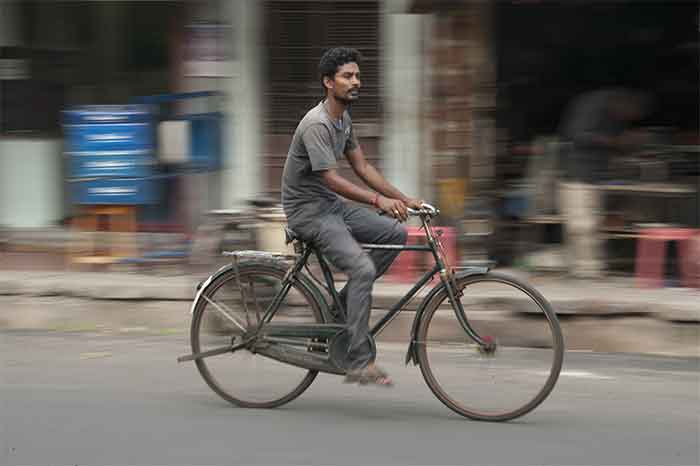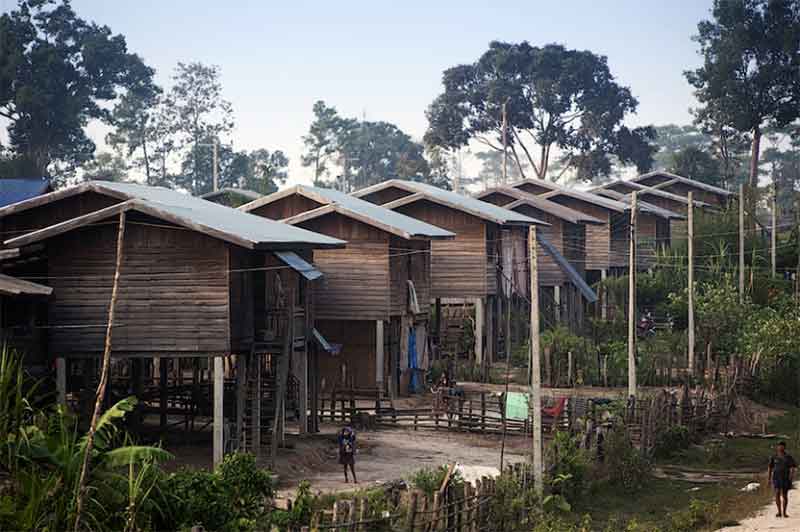
In the twentieth century nothing represented the working class culture more than the bicycle did. That is why the film ‘Bicycle Thief’ (1948, Italy, Director: Vittorio De Sica) remained the best film ever made for many years and still is one of the ten best films ever made.
Jamshedpur with a population of 1.34 million is the largest and most populous city in Jharkhand. Founded in 1919 by Jamsetji Tata, the founder of the Tata Group, It is also the oldest planned city in India.
Jamshedpur is an industrial city and the working class is the majority here and so is the bicycle. Till the end of the last century the city could be called a bicycle city. Apart from the bicycle there were also cycle rickshaws.
The visibility of both has decreased in the 21st century with the glitter of the neo-liberal economy with its neo rich middle class, bikes, scooters, scooties, cars, SUVs and so on. Still if you look for it, the bicycle and the working class is everywhere.
Again if you visit only down town Bishtupur area or the Jubilee Park or the surrounding officers’ colonies you might see fewer bicycles and many of them will be fancy colourful bicycles. It is in the morning that you see thousands of roadsters coming to town from nearby villages or non town areas. Similarly in Adityapur and other industrial areas, the roads are full of roadster bicycles. My estimate is that there are more than five lakh bicycles in the city.
The bicycles here are well maintained. The reason is that most of the owners are workers and have knowledge and tools at home and they take care of them. For a similar reason the repair shops are also good.
There are a significant number of ladies bicycles – used by both men and women. Most workers carry some thing with them – lunch box, a bag etc. Many ride double – often with a lady on the carrier.
Traffic is fairly smooth. Except in Sakchi market area and railway station area there is no traffic congestion. Although there is enough space for them, there are no bicycle lanes.
I have had similar impressions about Bokaro, Bhilai, Durgapur, Kanchrapara and IIT Kharagpur campus. The conclusion is that if the city is planned, if the majority of people are manual workers and if there are no extremely poor people then it is a good place for the cyclist.
T. Vijayendra (1943- ) was born in Mysore, grew in Indore and went to IIT Kharagpur to get a B. Tech. in Electronics (1966). After a year’s stint at the Saha Institute of Nuclear Physics, Kolkata, he got drawn into the whirlwind times of the late 60s. Since then, he has always been some kind of political-social activist. His brief for himself is the education of Left wing cadres and so he almost exclusively publishes in the Left wing journal Frontier, published from Kolkata. For the last nine years, he has been active in the field of ‘Peak Oil’ and is a founder member of Peak Oil India and Ecologise. Since 2015 he has been involved in Ecologise! Camps and in 2016 he initiated Ecologise Hyderabad. He divides his time between an organic farm at the foothills of Western Ghats, watching birds, writing fiction and Hyderabad. He has published a book dealing with resource depletions, three books of essays, two collections of short stories, a novella and an autobiography. Vijayendra has been a ‘dedicated’ cyclist all his life, meaning, he neither took a driving licence nor did he ever drive a fossil fuel based vehicle. Email: [email protected]















































